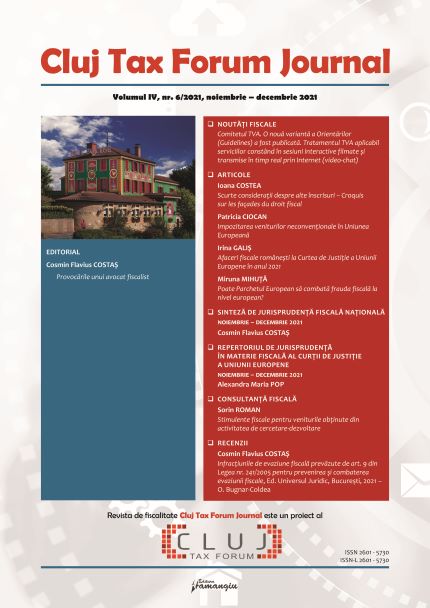Poate Parchetul European să combată frauda fiscală la nivel european?
Can the European Public Prosecutor’s Office Tackle European Tax Fraud?
Author(s): Miruna MihuțăSubject(s): Law on Economics, Fiscal Politics / Budgeting, EU-Legislation, Corruption - Transparency - Anti-Corruption
Published by: Editura Hamangiu S.R.L.
Keywords: European Public Prosecutor’s Office; European tax fraud; tax law harmonisation; financial interests of the Union;
Summary/Abstract: Ever since its genesis, the European Public Prosecutor’s Office has been deemed controversial, not only in nature, but also in its prerogatives and its procedures. This European body has been finally ‘conceived’ in 2017, after decades of debates and strenuous attempts from the Commission to try convince the Member States to adhere to this initiative. It is seen as an independent investigative organ, whose purpose is primarily to investigate, prosecute and bring to justice criminal acts that affect the European Union’s financial interests, with delegated national prosecutors under the supervision of a Chief Prosecutor. Albeit noble, the purpose cannot be fulfilled as long as the means are not efficient. A question still lingers in the legal community: whether the EPPO will ever able to fully tackle European tax fraud, especially in the current context, where each Member State is fully competent to implement tax laws, especially in the domain of the VAT. Can an European body harmoniously interfere with national investigative bodies to investigate tax frauds, or is it dire that tax laws be harmonized across all Member States, in order to create a coherent European judicial area?
Journal: Cluj Tax Forum
- Issue Year: IV/2021
- Issue No: 6
- Page Range: 442-454
- Page Count: 13
- Language: English
- Content File-PDF

